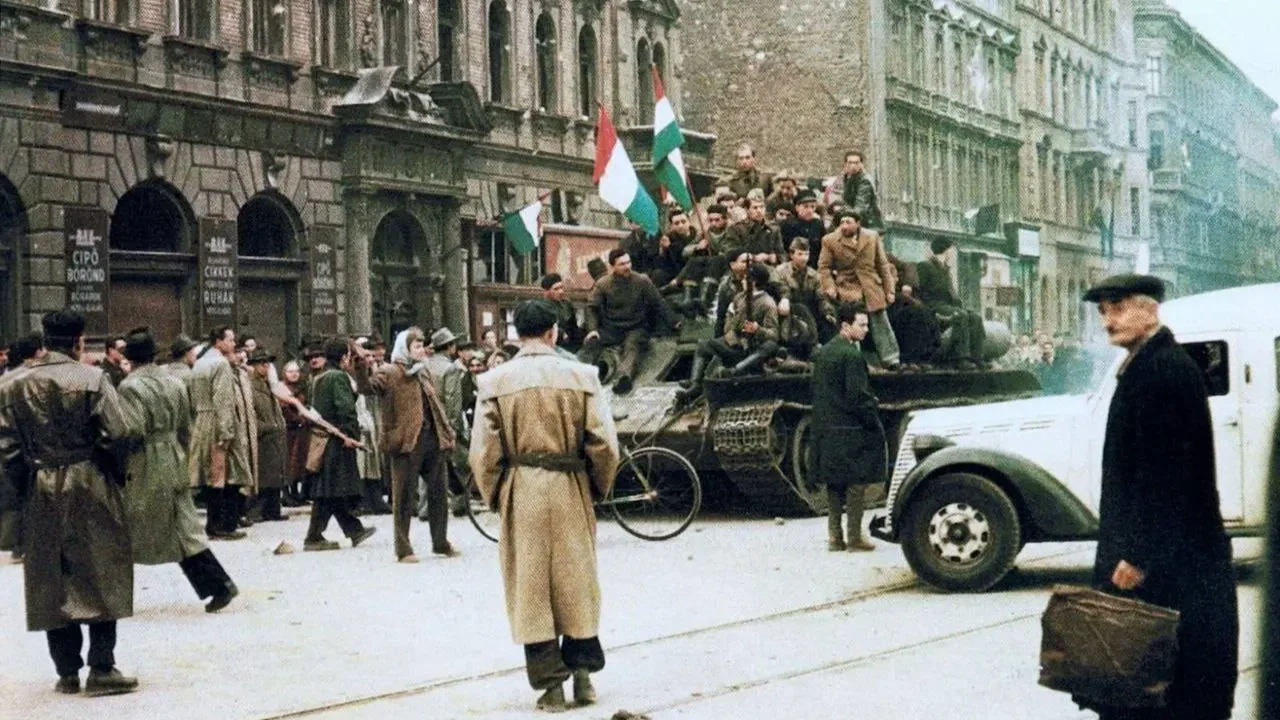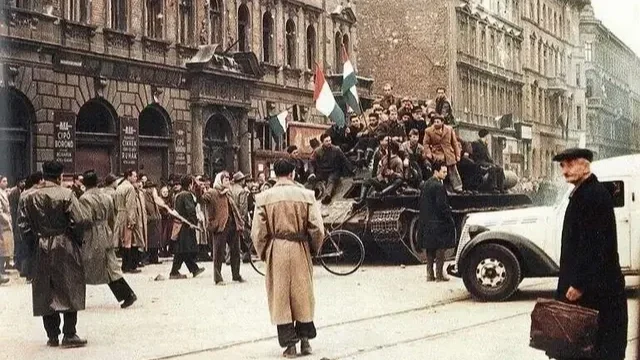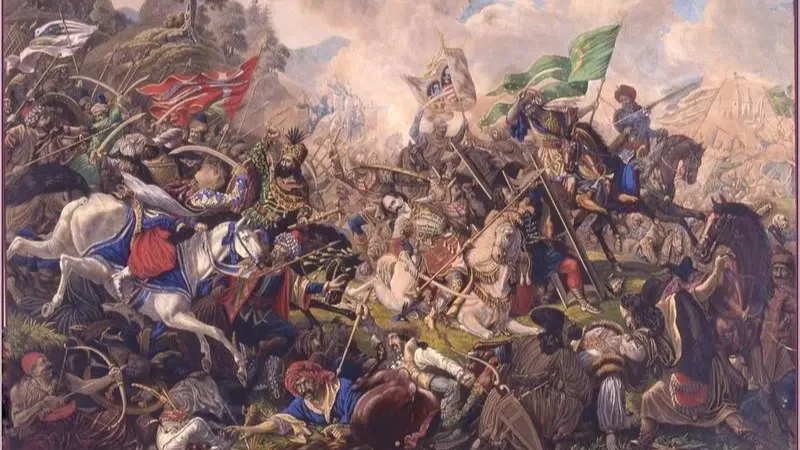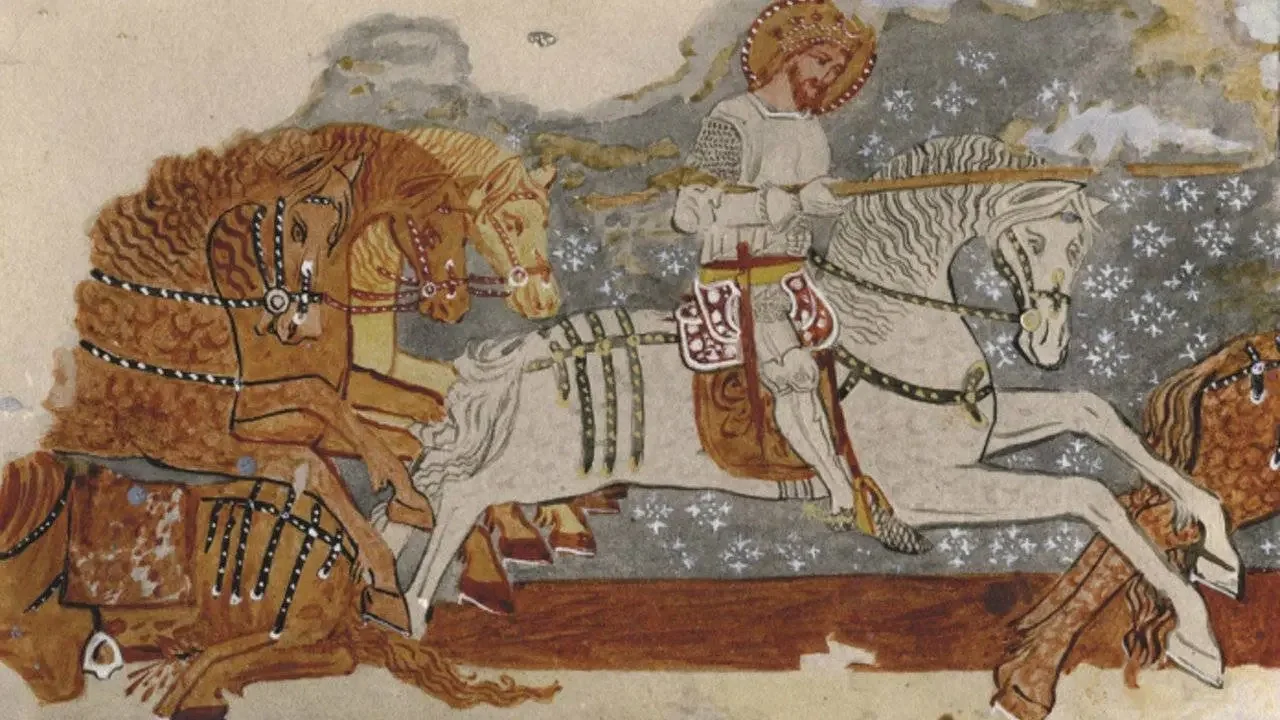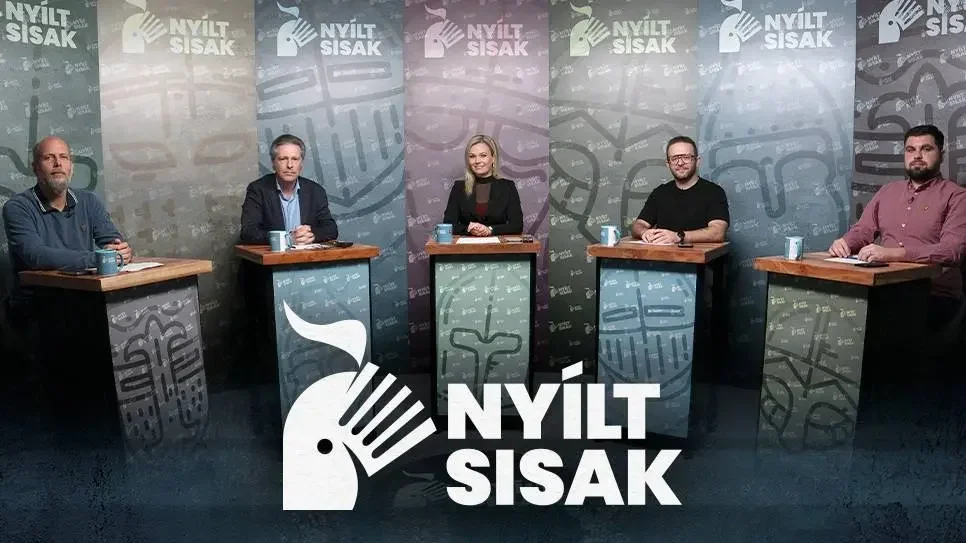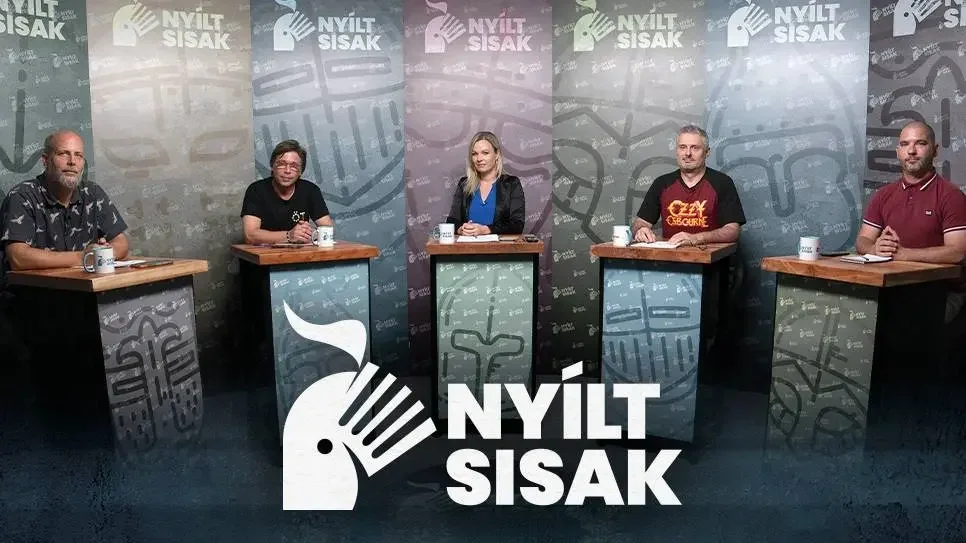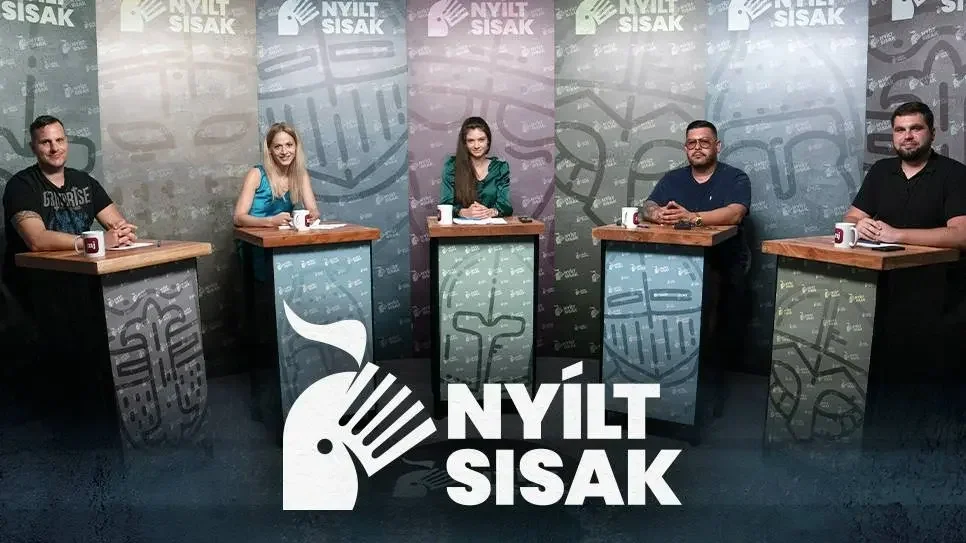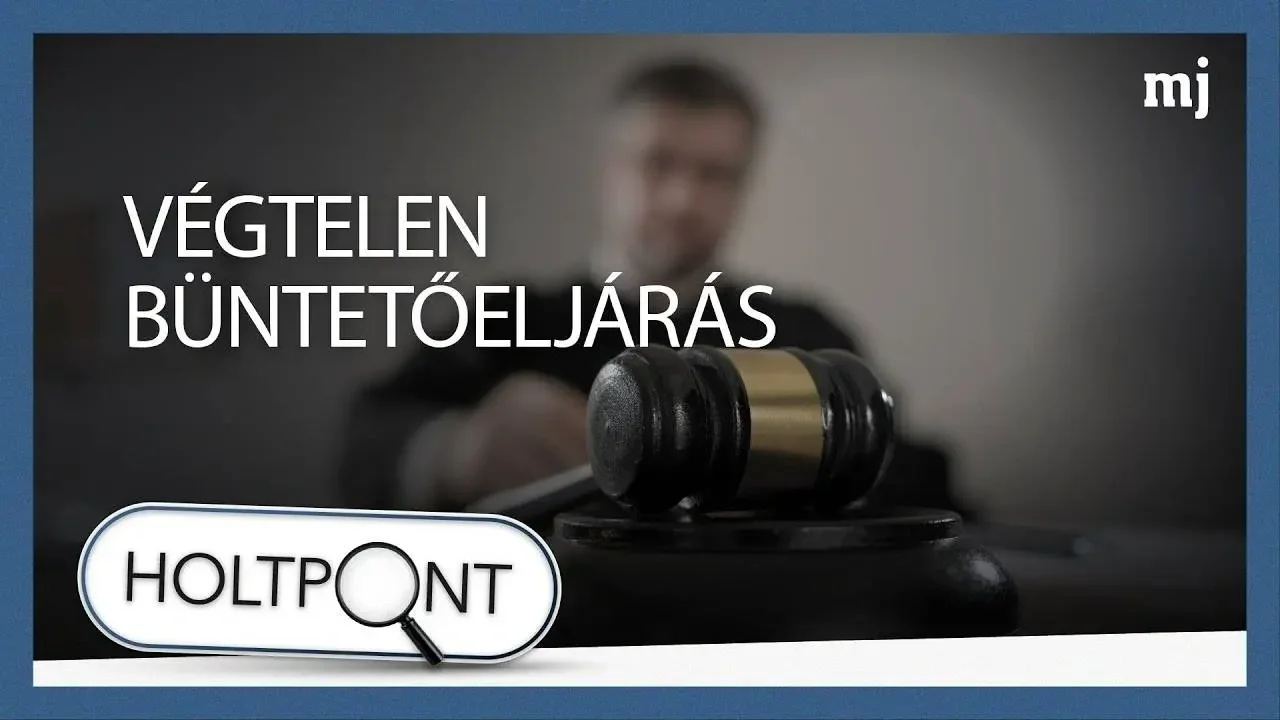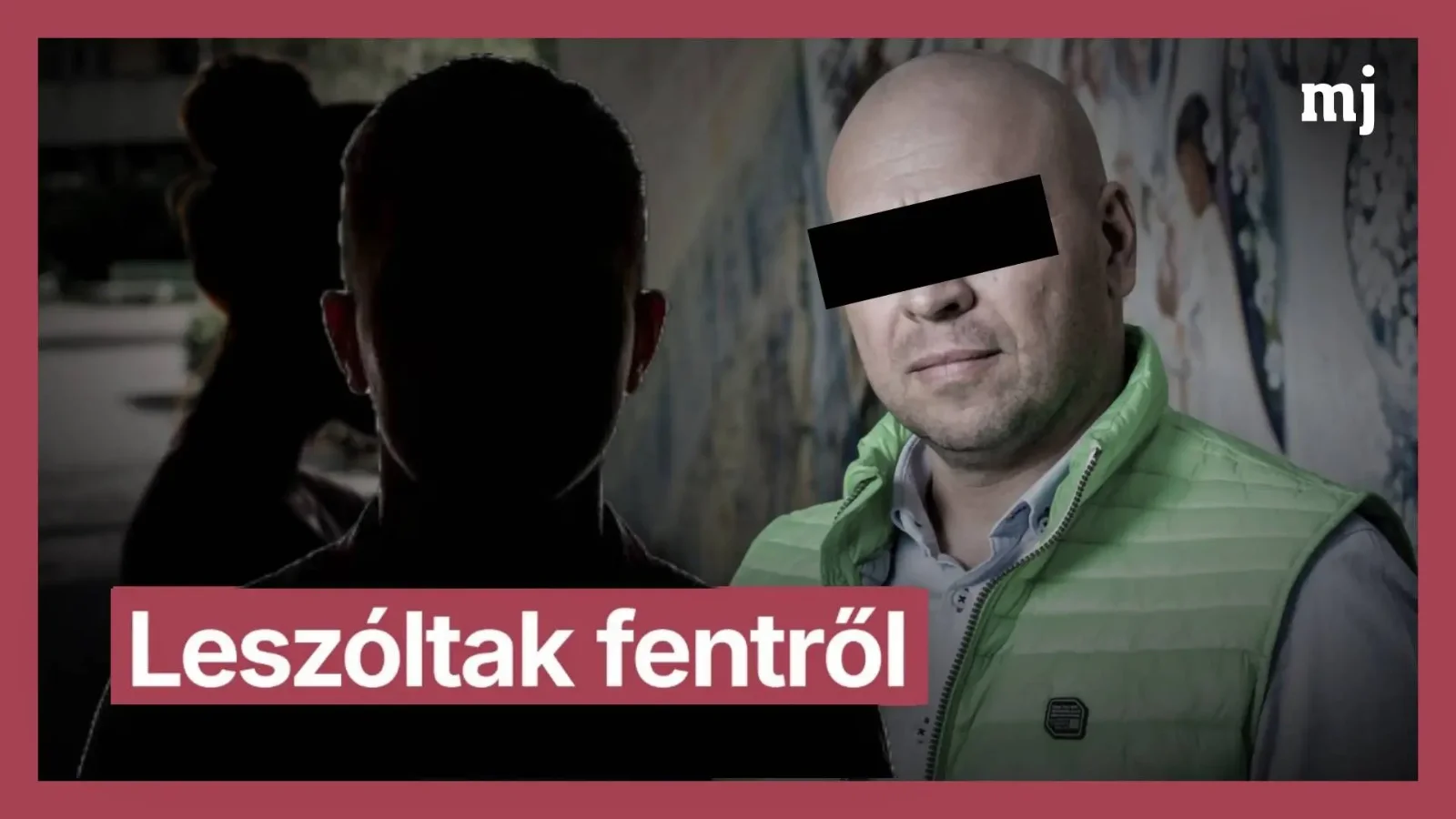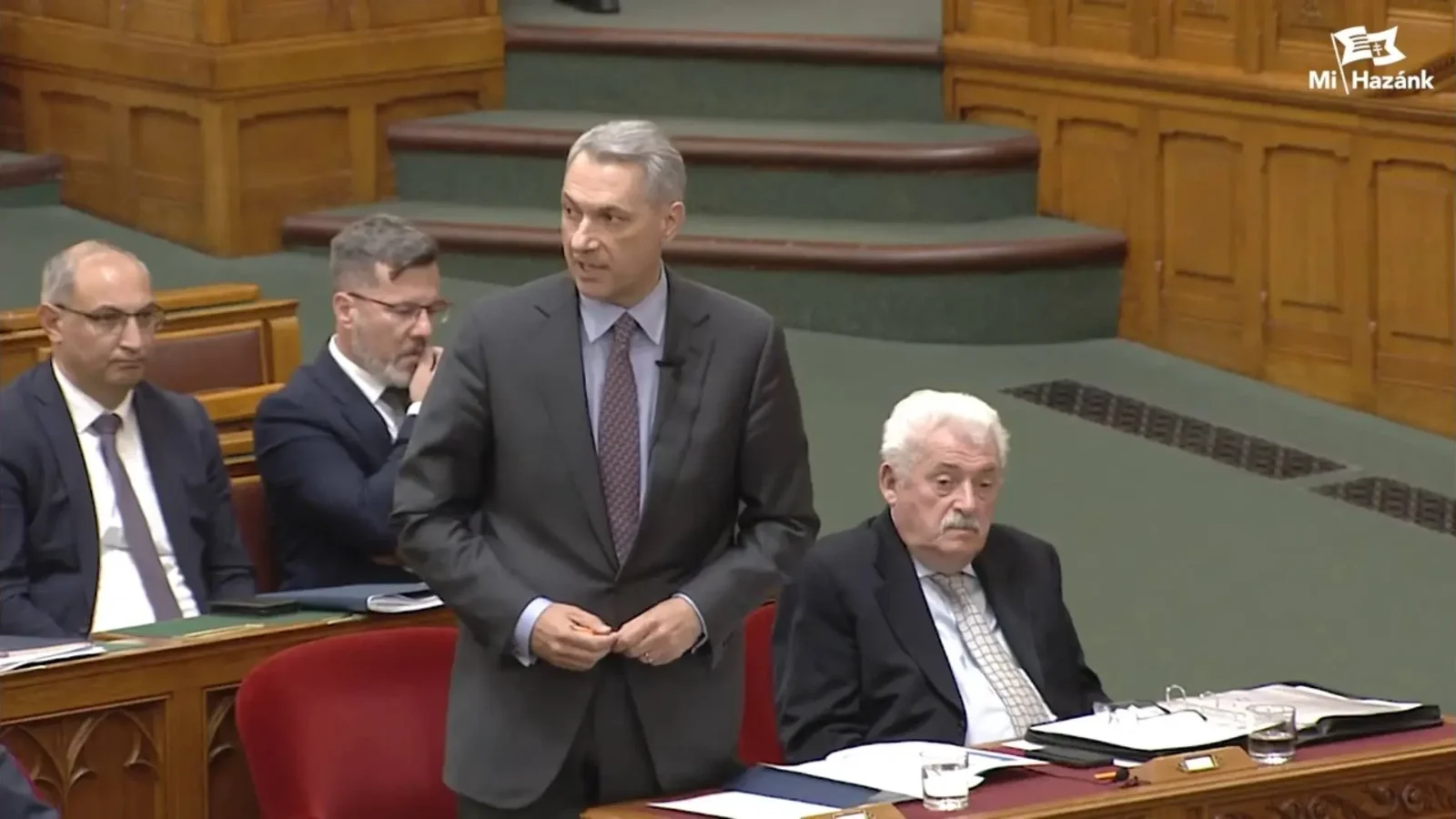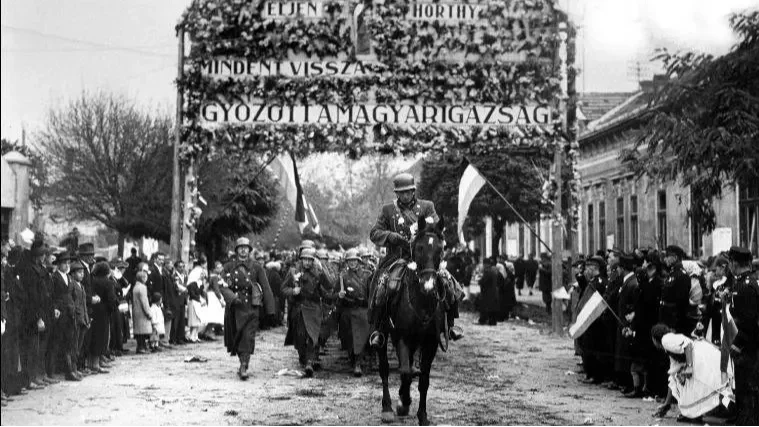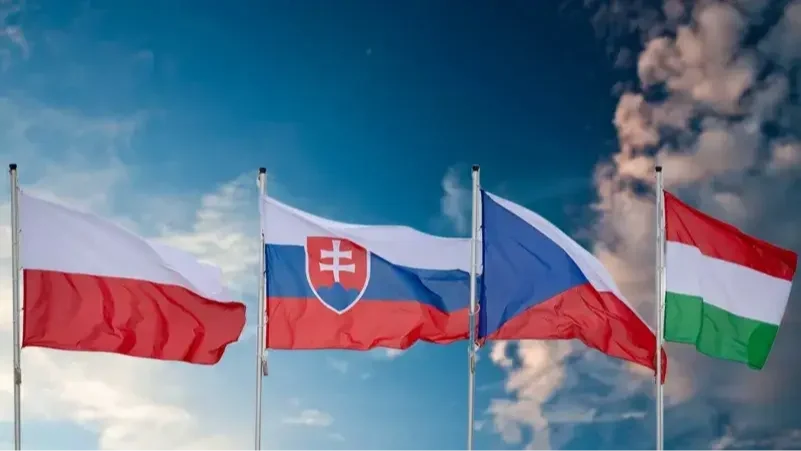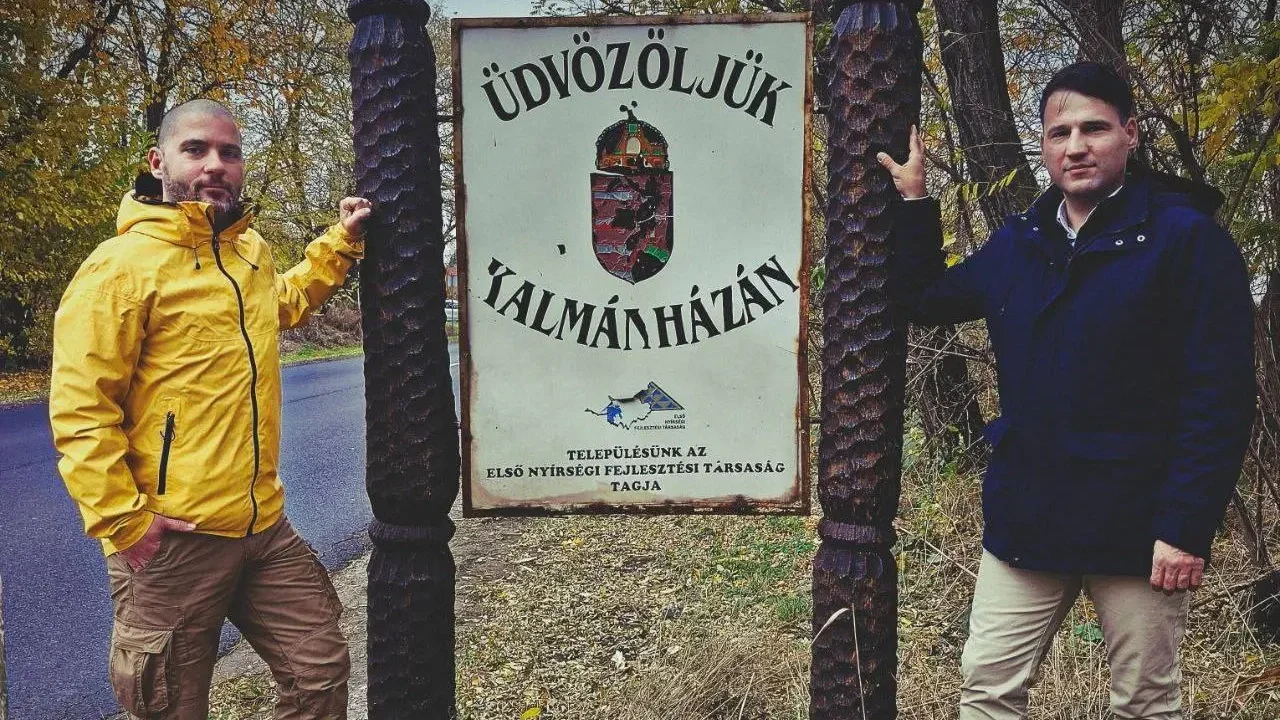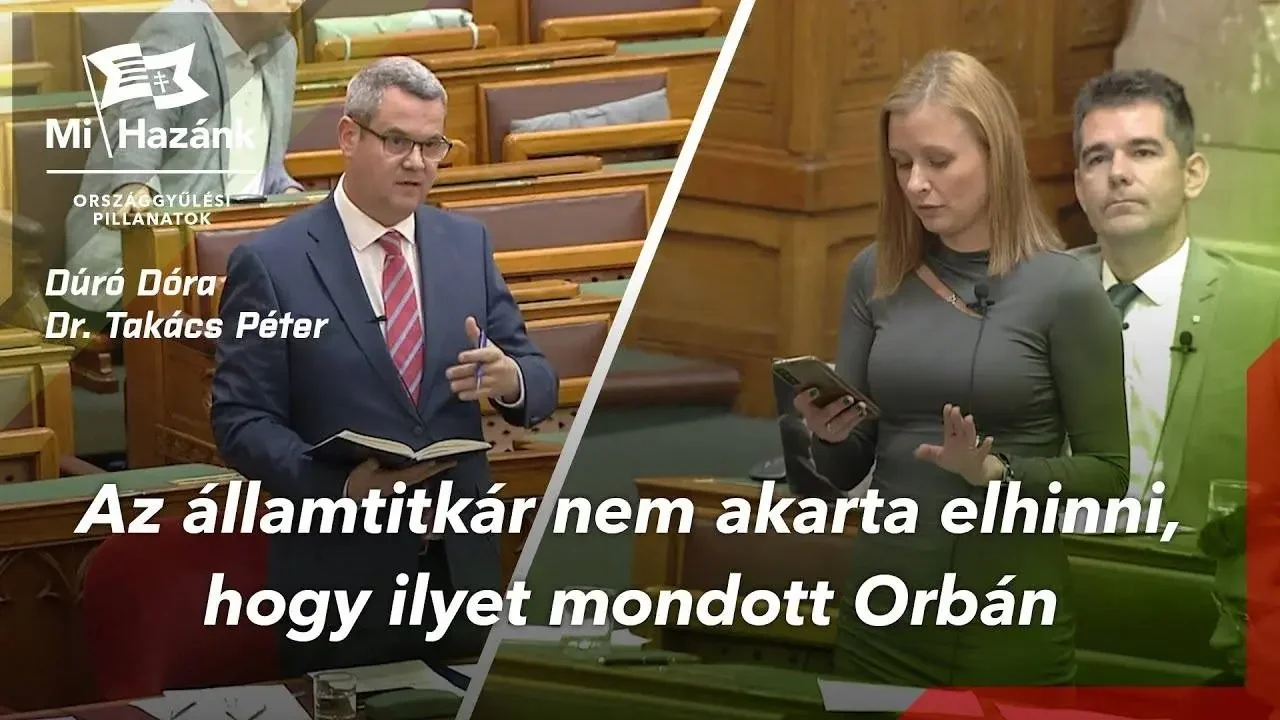Nationalism vs. Chauvinism in Central and Eastern Europe Part III: Hungary's Quest for Principled Regional Cooperation
 Hungarians mark the 171st anniversary of the 1848 revolution and war of independence against Habsburg rule during a commemoration held in Budapest in March 2019. Photo: EPA-EFE / Zoltán Balogh
Hungarians mark the 171st anniversary of the 1848 revolution and war of independence against Habsburg rule during a commemoration held in Budapest in March 2019. Photo: EPA-EFE / Zoltán Balogh
This final section looks at how the differences discussed in Parts I and II show up in today’s Central European political landscape. Hungary’s effort to define its identity goes beyond its borders, affecting ethnic Hungarian communities across the Carpathian Basin. These communities increasingly face pressure from neighboring governments that see their presence as a threat. This conflict points to a deeper issue, the crucial difference between nation builders and nation destroyers. This distinction matters greatly in understanding current Hungarian regional politics.
A key question faces every genuine Hungarian patriot, especially those active in the nationalist movement. How can a sustainable nationalist movement in Hungary support Hungarian minorities in neighboring countries while engaging effectively with governments that use these communities for their own political agendas? Navigating this political tightrope requires both firm principles and the practical toughness that successful leadership demands. Any movement that claims to represent the true interests of Hungarian citizens should be judged by its ability to strike this balance.
Hungarian national consciousness carries the weight of a thousand years of struggle and survival. From King Saint Stephen to the trauma of Trianon, this historic memory runs deeper than temporary political trends. It is not just nostalgic. It forms the foundation of authentic Hungarian politics, offering both inspiration and warnings, especially about the costs of weakness.
Those who want to serve Hungary must face the realities of today’s European politics. Hungarian nationalists cannot ignore the European Union or international law. Instead, they need to work wisely within these frameworks to achieve lasting results. At the same time, they must always focus on their primary duty: protecting Hungarian communities both at home and abroad.
Consider the Hungarian approach compared to the artificial hatreds found in neighboring countries. When Hungarian activists call for minority rights in places like Erdély (Transylvania), Vajdaság (Vojvodina), or Felvidék (Slovakia), they appeal to a long history of legal traditions, cultural continuity, and basic human dignity. There is no talk of ethnic conflict, just a straightforward request for minority rights that any civilized nation should respect. However, when Serbian authorities cancel cultural events in Hungarian or when local officials deliberately undermine Hungarian schools in Romania, they reveal a different agenda. Although these politicians may claim they are protecting their language, the real message is about elimination, not preservation. This highlights an important truth: there is a clear difference between constructive nationalism and destructive chauvinism.
Hungary’s Mi Hazánk Mozgalom (Our Homeland Movement) shows what principled nationalism looks like when ideas meet politics. Unlike groups that define themselves mostly by opposing others, László Toroczkai’s movement offers a clear vision of national sovereignty. They promote Hungarian heritage as a positive contribution to neighboring nations, based on both ethical principles and strategic thinking.
László Toroczkai’s work shows the careful balance that separates true nationalism from simple populism. Mi Hazánk does more than just oppose. It offers real solutions rooted in Hungarian traditions. Their idea of Hungarian sovereignty recognizes that working within the European Union is a fact of life while firmly protecting as much sovereignty as possible within that framework. The party refuses to give up fundamental values for short-term advantages.
Mi Hazánk puts politics into practice by focusing on cultural preservation, minority rights, and what party leaders call "sovereignty through cooperation," reflecting how responsible nations successfully survive and grow in today’s world. Their approach to minority rights also shows this style of strategic wisdom. It stresses the importance of legal protections, cultural autonomy, and ongoing dialogue. These policies are not a sign of weakness but a form of principled pragmatism that builds lasting strength instead of chasing quick wins.
On the other hand, the Alliance for the Union of Romanians in Romania (AUR) shows how old ethnic hostilities have adapted to modern politics. George Simion’s party uses the same anti-Hungarian sentiment that has been part of Romanian chauvinism for over a century. But now this deep hostility is hidden behind populist language designed to avoid international condemnation while deliberately misleading Western observers.
Simion tries to soften the divisive nature of his movement to appeal to Western audiences who may not fully understand Central Europe’s complex history. Yet anyone familiar with the region’s tragic past will recognize the signs. AUR members vandalize Hungarian monuments, disrupt cultural events, and strongly oppose Hungarian-language education, mirroring tactics used by Romanian chauvinists for generations. Despite new rhetoric, their goal remains the same. Romanian chauvinists want to weaken Hungary’s ethnic communities in Transylvania and the Partium by suppressing their culture and limiting their political influence.
Romanian chauvinists’ true goal is the gradual erasure of Hungary’s presence in Romania. While parties like AUR claim to defend "Romanian interests," this misleading narrative only finds support among those who ignore the historical facts.
One of the more hopeful trends in today’s regional political landscape is the recent cooperation between rival Hungarian and Serbian nationalist movements, something not seen since before World War I. This collaboration, especially the alliance between László Toroczkai and Serb nationalist Dragan Stanojević, shows that common principles and mutual respect can overcome even the deepest historical animosities when the focus is on national dignity.
This promising new dynamic is best seen in their joint campaign to protect historical relics from Romanian vandalism. Rather than reacting instinctively to old Hungarian-Serbian grievances going back centuries, both men have recognized their shared interest in preserving memory instead of letting it be systematically erased.
Légió Hungária has taken the idea of collaboration even further under the leadership of Incze Béla. The organization has built lasting, organic ties with nationalist movements across Central Europe, promoting what they call a vision of "Europe without chauvinism." This plan for cooperation respects national distinctiveness while addressing a shared challenge posed by globalist homogenization and cultural decline.
These alliances are not just tactical deals that change with the times. Instead, they are based on mutual respect, shared values, and a common belief that strong states should support each other rather than compete in a zero-sum struggle for dominance.
The historic relationship between Poland and Hungary faces its biggest challenge in decades as fundamentally different views on Ukraine threaten to weaken centuries of brotherhood. Warsaw’s firm support for Kiev stands in sharp contrast to Budapest’s call for a negotiated peace settlement. If not carefully managed by leaders who understand the need for a long-term perspective, this gap could put their valuable relationship at risk.
Both nationalist movements in Hungary and Poland have shown maturity by acknowledging their legitimate disagreements while keeping relations constructive. Despite their differences, they remain united by shared historical truths. Strong nations do not have to agree on every issue to stand together as brothers in arms for European civilization and to promote patriotic resistance.
This balanced approach reflects the deep historical awareness that has connected Polish and Hungarian nationalism for centuries. When activists from both countries come together in places like Częstochowa to honor their shared Catholic heritage, they do so in a way that rises above current political disagreements. Their bond, built on shared sacrifice, faith, and history, matters more than any temporary political disputes.
The European Union’s policy toward Central European nations has consistently aligned with the worst elements of chauvinism while punishing constructive nationalists. This pattern is too persistent to be explained by ignorance or bureaucratic incompetence. For example, extremist militias in Ukraine receive blind support because they oppose Russia, while Hungary faces harsh criticism for basic border security measures and traditional family policies that have broad popular backing.
This selective approach ignores the critical difference between constructive nationalism and destructive chauvinism. When Hungary advocates for genuine minority rights in Székelyföld or basic educational rights in southern Slovakia, it is defending legitimate ethnic interests rooted in centuries of social practice, not promoting abstract ethno-supremacism.
All too often, Brussels’ policies reward chauvinistic behavior while punishing constructive nationalism. This contradicts what Europe needs today and raises concerns that the EU either does not fully understand the regional dynamics or prefers to maintain divisions rather than promote unity.
As Hungarian journalist István Lovas rightly observes, a healthy form of nationalism fosters the development of economic blocs made up of like-minded sovereign nations. In contrast, any form of chauvinism that requires putting on a tough front with partners you need to work with daily can alienate those same allies and create new instability. Hungary’s ability to maintain productive trade relationships with neighboring countries, even when their politicians often criticize Hungarian minorities, shows the maturity that modern Hungarian nationalism has gained through recent historical experience.
This kind of economic cooperation is especially important given the constant pressure from Brussels on Central European countries to give up their traditional social policies in favor of Western European norms. Long-term success will depend on building gradually on effective strategies while refusing to compromise on core principles, no matter how tempting such compromises might appear in the short term.
The cooperation between nationalist movements in Hungary, Serbia, Poland, and Slovakia is strong evidence that shared values can overcome deep historical tensions. This only works, however, when those values are grounded in mutual respect for national dignity and all sides are willing to uphold them with honesty and integrity.
Organizations like Légió Hungária represent a commendable tradition. Their vision of a "Europe without chauvinism" is built on several key principles: defending each nation's right to preserve its unique cultural traditions while rejecting global homogenization, supporting traditional family models and Christian values across borders, and encouraging peaceful cooperation based on mutual respect rather than dominance or submission.
This kind of collaboration shows nationalism at its most constructive. It prioritizes unity over division. When Hungarian activists work closely with local partners, they show that strong national identities can reinforce each other instead of being in conflict. Too often, nationalist movements ignore this. But when Hungarian nationalists cooperate with Moravians or Silesians to defend shared cultural heritage or to push back against mass immigration, they put this principle into action.
Understanding the divide between nationalism and chauvinism is essential for grasping Central Europe's political dynamics and anticipating Hungary's future. Historical leaders like Gyula Gömbös and Ottokár Prohászka emphasized internal development and cultural renewal over external aggression. That tradition continues to shape modern Hungarian nationalist thinking and offers a solid intellectual foundation for cooperation with neighboring communities.
Most Hungarian nationalist movements today have adopted this positive approach. They understand that the goal is not ethnic conflict, which would only weaken the Hungarian community. This perspective, grounded in historical awareness and practical experience, offers a genuine source of stability in a region often plagued by artificial hostilities and outside interference.
Recent collaboration among principled movements across Central Europe shows that nationalism, when practiced responsibly, can support regional stability rather than constant confrontation. These partnerships, built on mutual respect and a shared resistance to both globalist homogenization and chauvinist aggression, offer the hope of lasting cooperation. Movements like Mi Hazánk and Légió Hungária show how nationalism can be a force for unity and renewal.
The difference between these two approaches is both clear and consequential. Principled nationalism seeks to uplift one’s own people while respecting others. Destructive chauvinism, by contrast, tries to elevate itself by harming its neighbors. This core distinction will shape whether Central Europe moves toward meaningful cooperation or remains stuck in cycles of hostility that serve outside powers.
Hungary’s nationalist movements offer a model worth considering, but it is important to recognize the internal tensions within any active political tradition. Groups that take rigid positions, whether rooted in chauvinist hostility or globalist submission, can be disruptive. At the same time, they help define the space in which more balanced actors can operate. The key is keeping the focus on the well-being of Hungarian communities throughout the Carpathian Basin.
The future of Central Europe depends on the path it chooses. Nationalism and chauvinism lead in very different directions. Hungary shows that principled nationalism, when applied with consistency and clarity, can protect national interests while encouraging cooperation in a region that urgently needs stability.
“News is sacred, opinion is free.” The views expressed in this article are those of the author and do not necessarily reflect the views of Magyar Jelen or its affiliates.
The following is a complete bibliography for all three parts:
Books and Scholarly Works
- Bryce, James (1877). Impressions of Hungary. Oxford: Oxford University Press.
- Bryce, Lord James. Observations on Hungary (1877).
- Borsos, Balázs (2018). "A kisebbségvédelem összehasonlító elemzése Közép-Európában." Ethnographia, 129(2), 345–367.
- Deák, István (1992). "The Habsburg Empire." In Barkey, K. & von Hagen, M. (Eds.), After Empire: Multiethnic Societies and Nation-Building (pp. 129–141). Westview Press.
- Deák, István. Beyond Nationalism: A Social and Political History of the Habsburg Officer Corps, 1848–1918. Columbia University Press.
- Jakab, András (2020). "Double Standards in EU Minority Protection Policy." Hungarian Review, 11(3), 27–42.
- Kocsis, Károly (2019). "Etnikai változások a Felvidéken 1945–2011." Magyar Tudományos Akadémia.
- Lovas, István (2018). "The Economic Case for Nationalism." Magyar Idők, June 17.
- Lovas, István. Regional Cooperation and Nationalist Politics.
- Prohászka, Ottokár (1926). Kultúra és terror. In Prohászka Összes Művei, Vol. XI.
Historical Documents and Legislation
- Hungarian Act XLIV of 1868 (Nationality Law).
- Hungarian Act on the Rights of National and Ethnic Minorities (1993, amended 2011).
- Treaty of Trianon (1920).
Institutional Reports and Research
- Hungarian Academy of Sciences (2021). "EU Infringement Procedures and Minority Protection: Comparative Analysis 2010–2020." Institute for Minority Studies.
- Hungarian Academy of Sciences (2021). "The Beneš Decrees: Historical Analysis and Contemporary Legal Status." Institute for Legal Studies.
- Hungarian Central Statistical Office (2023). Nemzetiségi oktatás Magyarországon 2010–2022.
- Hungary's Central Statistical Office. Minority Education Statistics (2010–2020).
- Hungarian Human Rights Foundation (2023). Annual Report on Minority Rights Violations in the Carpathian Basin.
- Visegrád Group Secretariat (2023). Economic Cooperation in Central Europe: Achievements and Challenges. Warsaw: Regional Cooperation Policy Brief.
Media and Journalistic Sources
- Demokrata (2024). "Orbán's Strategic Misstep with Simion." April 15.
- Demokrata Magazine. Various articles on Hungarian-Romanian relations.
- Magyar Hírlap (2023). "Mi Hazánk és a V4 együttműködés jövője." December 12.
- Magyar Jelen (2024). "Mi Hazánk és a külhoni magyarok jövője." February 21.
- Magyar Történelmi Társulat (2017). Speeches and writings of Sándor Szakály on Hungarian national identity. Budapest: MTA.
Interviews and Public Statements
- Incze, Béla. "Sovinizmus-mentes nacionalista Európát." Interview.
- Légió Hungária (2024). Interview with Incze Béla. "Sovinizmus-mentes nacionalista Európát." legiohungaria.org/interjuk/incze-bela-2024
- Toroczkai, László. Twitter/X Posts and Public Statements.
- Légió Hungária. Organizational documents and public statements.
Party and Movement Documents
- Mi Hazánk Mozgalom. Official Party Platform and Policy Documents.
- Mi Hazánk Mozgalom (2023). "Nemzet, család, hagyomány: Kiáltvány a magyar jövőért." mihazank.hu.
- European nationalist movement. Cooperation documents and joint declarations.
Other Historical and Political Commentary
- Iorga, Nicolae. Various writings on Hungarian Romanian relations.
Mi a munkánkkal háláljuk meg a megtisztelő figyelmüket és támogatásukat. A Magyarjelen.hu (Magyar Jelen) sem a kormánytól, sem a balliberális, nyíltan globalista ellenzéktől nem függ, ezért mindkét oldalról őszintén tud írni, hírt közölni, oknyomozni, igazságot feltárni.
Támogatás

